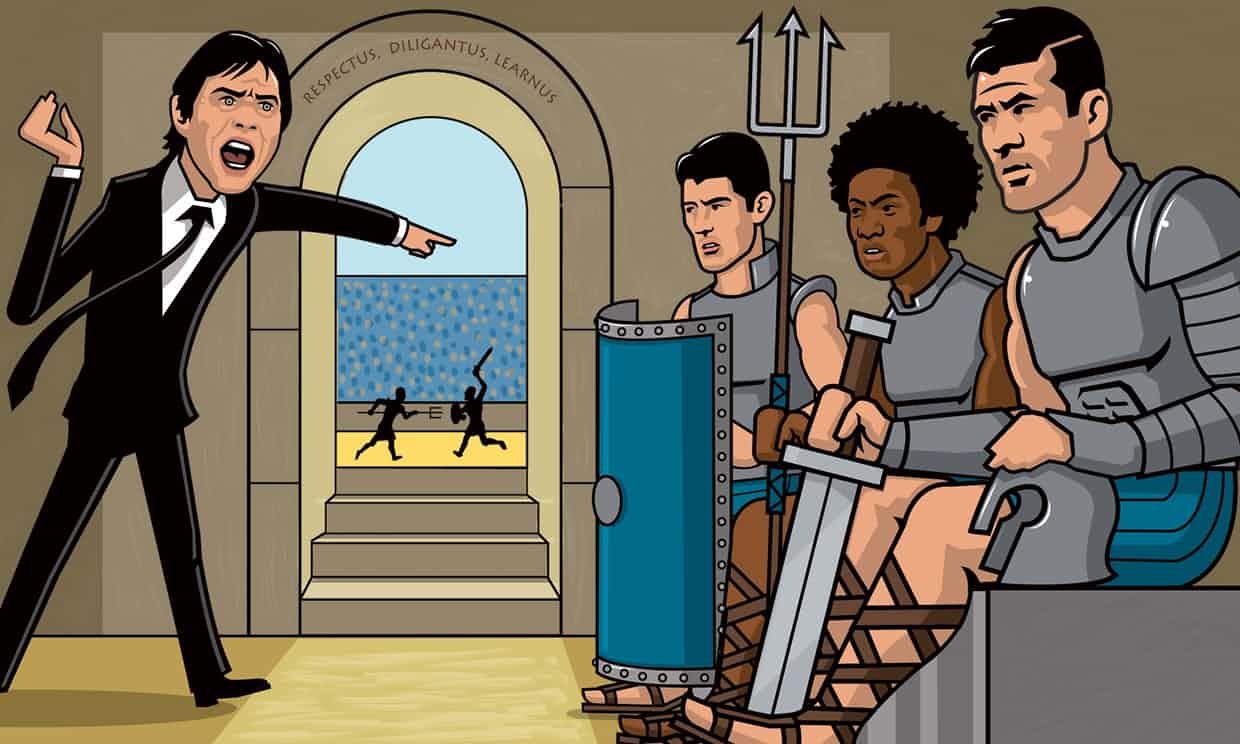Italy still producing prize managerial exports from its winning system
As long as he doesn’t blow it, and nothing in his record suggests that he will, sometime within the next three months Antonio Conte will become the fourth Italian manager to lead a team to the Premier League title. Remarkably, that quartet – in which he would join Carlo Ancelotti, Roberto Mancini and Claudio Ranieri – will have claimed the English championship in four of the past eight seasons.
No English-born manager, of course, has won the title since Howard Wilkinson in 1991-92, the year before the Premier League was launched. No Frenchman since 2003-04, no German, Spaniard or Dutchman ever. So this is a considerable distinction for Italian football, and for the work done at Coverciano, Italy’s national technical centre. But perhaps the most interesting aspect of the success of these four men is that they give no impression of having been moulded by a single system.
You would not look at the way they operate and feel tempted to identify a particular “Italian wayâ€. There has been no suggestion of a modern form of catenaccio, for instance, being applied across the board – or indeed applied at all. If you were looking for a foreign manager ready to park the bus, you would probably look to Portugal. As individuals these four Italians – the genial but pragmatic Ancelotti, the stylish but chilly Mancini, the avuncular Ranieri, the warrior Conte – offer distinct contrasts in temperament, style and approach to the game.
“It’s an Italian thing to be different,†Wilkinson said when I asked him about it this week. “Italians aren’t slaves to knowledge. They’re slaves to learning. And they are not slaves to conformity. They like an opinion. They’ll agree that two plus two makes four, but they’ll each have a different way of applying it.â€
Not every Italian coach has met the Premier League’s demands: the failures range from Attilio Lombardo at Crystal Palace to Francesco Guidolin at Swansea City, with the jury currently out on Walter Mazzarri’s tenure at Watford. But the big four faced contrasting challenges when they joined their respective clubs, who were at different stages of evolution and expectation. What unites them is that they worked intelligently and effectively on their way to success.
Italians have always been noted for a strong emphasis on tactical preparation, but that hardly makes them unique among modern coaches. Everyone at the top level now studies tactics and works hard on the training pitch to instil them into their players. But these men – now aged between 47 (Conte) and 65 (Ranieri) – grew up in Italian football at a time when a regime of two training sessions a day and an emphasis on punctuality and good nutrition, thought essential to the business of developing young players, contrasted with a less rigorous approach in England.
Wilkinson remembers asking Trevor Francis about his time with Sampdoria in the 1980s, and how it differed from the English experience. “He said something very interesting: when you turn up for training in Italy, the coach isn’t expected to make you happy. You’re turning up at school, essentially.†He also recollected a trip to Roma with the late Dave Sexton to watch Fabio Capello at work more than a decade ago. “You got the impression that the preparation for the game involved not only a plan A but a plan B and probably a bloody plan C, too, which the players were expected to take with them on to the pitch.â€
Strange, too, that these managers should emerge as winners in the world’s richest and most competitive league at a time when Serie A is so lacklustre. There are few star players, either home-produced or imported, and – with the exceptions of Juventus and Napoli – nothing much in the way of consistently interesting football.
From the perspective of producing great coaches, Wilkinson, who is now chairman of the League Managers Association, identifies what might be a significant difference between the Italian and English leagues. In Italy, he suggests, only Serie A really counts. By contrast with the 92 fully professional clubs of the English league, there are fewer big coaching jobs and fiercer competition to get them.
Gianluca Vialli, the first Italian to manage a Premier League club, had no coaching experience when he was invited to take over as Chelsea’s player-manager at Stamford Bridge in February 1998. The following year he became the first manager in the history of the top tier to put out a starting XI containing not a single British player. During his two and a half years in charge he won the League Cup, the European Cup Winners’ Cup, the European Super Cup and the FA Cup before dressing-room dissent forced his exit.
